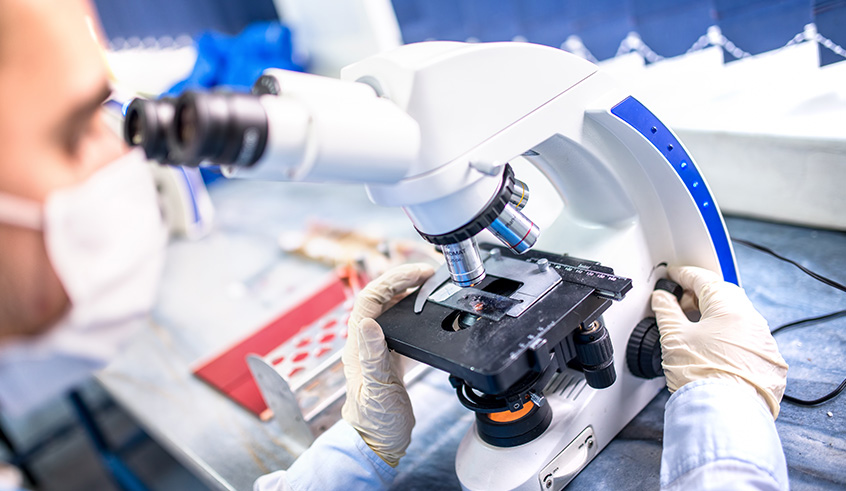
A clinical pathologist looks at blood, urine, and other body fluid samples under a microscope, or with other diagnostic tools. He or she watches levels of certain chemicals or other substances in the body. A diagnosis or decision to do further study is then made based on the test results. Clinical pathology supports the diagnosis of disease using laboratory testing of blood and other bodily fluids, tissues, and microscopic evaluation of individual cells. Our board-certified veterinary clinical pathologists and technologists provide laboratory results in a timely, efficient and thoughtful manner; supporting research, clinicians, referring veterinarians, and students in the diagnosis and treatment of many animal species.
Clinical pathology covers many lab functions. It is concerned with disease diagnosis, treatment, and prevention. Clinical pathologists are healthcare providers with special training. They often direct all of the special divisions of the lab. This may include the following: